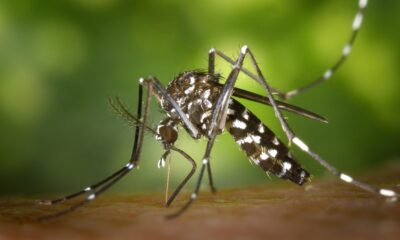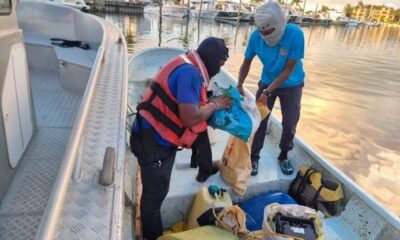Heart disease knows no boundaries as it affects individuals of all ages, genders, and backgrounds. The Caribbean Region is not immune to the burden of this disease. The incidence of heart disease in the Region is on the rise, particularly among younger populations. This increase is often attributed to changes in lifestyle, including a shift towards diets high in processed foods, limited physical activity, and increased rates of tobacco use.
“The Caribbean Public Health Agency (CARPHA) recognizes the urgency of this issue and has been working tirelessly to combat it. In collaboration with regional partners, CARPHA has implemented initiatives like the Caribbean Expanded Salt Initiative to reduce salt consumption and the Six-Point Policy Package to address childhood obesity, a critical contributor to heart disease risk. These programs aim to raise awareness, educate the public, and implement policies that promote heart-healthy behaviors,” said Dr. Joy St. John, Executive Director at CARPHA.
World Heart Day, observed annually on 29th September, serves as a reminder of the need to prioritize heart health on a global scale. This day is dedicated to raising awareness about cardiovascular diseases (CVDs) including heart diseases and stroke, their risk factors, and the importance of prevention and timely intervention. It encourages individuals, communities, and governments to take action and promote heart-healthy lifestyles. This year’s campaign Know Heart, Use Heart, focuses on the essential step of knowing our hearts first.
The most significant risk factors driving premature death and disability from CVDs are poor diet, physical inactivity, tobacco use, excessive alcohol consumption, high blood pressure, high blood glucose, and obesity. Several Caribbean countries have seen a rise in the prevalence of heart disease and related risk factors. These risk factors include hypertension (high blood pressure), obesity, and diabetes.
The prevalence and incidence of heart disease can vary among countries and territories within the Caribbean. Factors such as healthcare infrastructure, access to healthcare services, and socioeconomic conditions contribute to these variations. However, with the implementation of the Caribbean (Regional) NCD Surveillance System, countries will be able to provide information on the region’s prevention, management, and control of non-communicable diseases (NCDs). The access to high-quality data through this framework will also help to inform public health efforts and interventions to address this critical health issue of heart disease.
Dr. Heather Armstrong, Head, Chronic Disease and Injury at CARPHA: “Individuals play a fundamental role in reducing the burden of heart disease. Understanding your personal risk factors is your first step towards a healthier heart. Regular health check-ups can provide valuable insights into your heart’s condition. You can significantly lower your risk by adopting heart-healthy lifestyles, including a balanced diet, regular physical activity, and stress management. Communities can create environments that support these choices by providing safe spaces for exercise, access to fresh and nutritious foods, and education on the importance of heart health.”
Some simple actions you can take for a healthier heart:
• Eat a heart-healthy diet rich in whole foods
• Get moving with regular physical activity
• Know your heart – schedule age-appropriate health checks
• Encourage governments to promote heart health!
CARPHA calls on everyone – Caribbean Governments, civil society groups, regional organisations, and communities to take action. Establish, enforce, and protect NCDs prevention policies, and demonstrate your commitment to enhancing the quality of your life and that of your loved ones.
Take a moment today to show some love to your heart…because we love and protect only what we know.


 Caribbean News1 week ago
Caribbean News1 week ago
 Caribbean News7 days ago
Caribbean News7 days ago
 Caribbean News1 week ago
Caribbean News1 week ago
 Caribbean News1 week ago
Caribbean News1 week ago
 Bahamas News7 days ago
Bahamas News7 days ago
 News7 days ago
News7 days ago
 Bahamas News1 week ago
Bahamas News1 week ago
 News7 days ago
News7 days ago






















